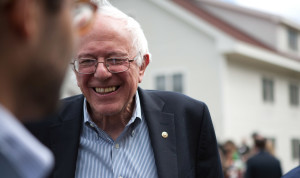Palast: Without Voter Suppression Stripping the Rolls, Harris Would Have Won Easily
If you’ve been bewailing the presidential election and wondering how the country you love could have voted to elect this monster, this may help you feel better: Maybe we didn’t! A respected commentator makes a strong case that millions of votes in heavily Democratic areas of red and purple states were not counted.
Greg Palast came to my attention in the aftermath of the 2000 election–yeah, the one that gave George W. Bush the victory, and eight years as the worst president the US had had until 2017.
Palast, an investigative journalist with a strong background in forensic economics, made a compelling case that the outcome, hanging on a margin of just 537 votes in Florida following a partial recount that was stopped by the Republican-dominated Supreme Court, may have had a lot more to do with the tens of thousands of likely Democratic voters (especially absentee voters) who were purged from the roles, often because of false reasons like their name matching or nearly matching that of some convicted felon. I remember the figure of 96,000, which was bad enough.
While I can’t find that stat right now, I found another article by Palast, from 2004, noting that 178,000 voters from heavily Black areas cast ballots that were disqualified for equally spurious reasons. It’s the one with the headline and picture about Roger Stone.
Well, what do you know! Palast is now making an equally compelling case that “4,776,706 voters were wrongly purged from voter rolls according to US Election Assistance Commission data.”
He says a single Republican operative challenged the eligibility of 32,000 mostly Black voters in her county, others challenged thousands of voters elsewhere in Georgia, and similar efforts in Wisconsin and around the country deprived those nearly 5 million people of their chance to vote. The Republicans claimed these people had moved, because they didn’t return a postcard that looked like junk mail–and in some parts of Georgia, only 1% returned the cards.
If Palast is accurate–and I believe he is–Harris would have won at least those two states, the popular vote, the Electoral College, and the presidency. She might have even taken Texas, where a new requirement to add ID numbers raised the rejection rate on absentee ballots from just 1% to 12%. (This is the same link as the 4,776,706 voters link above.)
In order to read that post in Thom Hartmann’s Substack newsletter, I had to become a subscriber. There is a no-charge level. But if you’d rather not subscribe, Palast makes many of the same points in this video, which is freely accessible. (It’s the same link as the “single Republican” link above.)
While this analysis makes me feel a bit better about US voters, it doesn’t talk about how to reclaim democracy. In the video, he notes that he told the Democrats what steps they needed to do to protect voters at risk of being barred from voting or having their ballots discarded, but they didn’t see a need for pre-emptive action. Perhaps if they see this new data, they could make a claim to some body like the International Court of Justice that the election was a cheat. And meanwhile, this information gives us yet more reasons to resist the coup through every nonviolent tactic we can.

